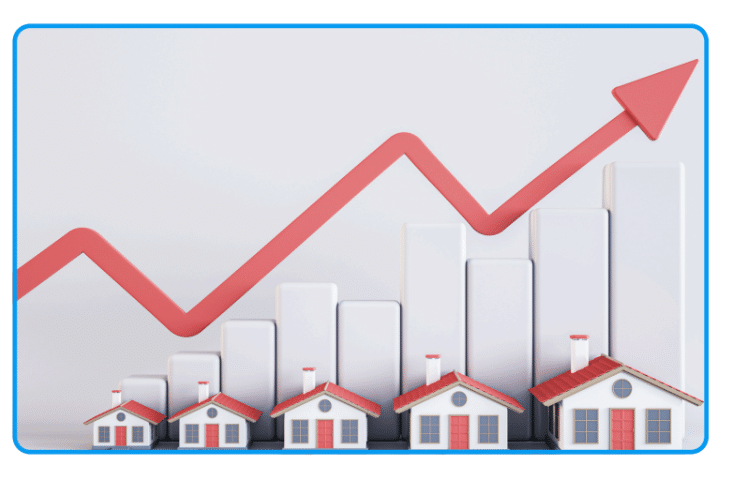How Long Is an Appraisal Good For?

As a homeowner, understanding how long your property appraisal lasts is crucial. Triangle Appraisal Group (TAG) is here to guide you through the factors that determine this timeframe.
Whether you’re buying, selling, or managing your home assets, an appraisal is essential. It establishes your property’s value at a specific point but isn’t valid indefinitely.
This blog will explore the elements that influence an appraisal’s validity. If you’ve ever wondered, “How long is an appraisal good for?” you’ll find the answers here.
General Lifespan of a Property Appraisal
We often find that under normal market conditions, a property appraisal typically holds its validity for about six months. This time frame allows for financial and transactional decisions to be made based on a current understanding of the property’s value. However, real estate is always fluctuating, and this standard period can vary.
Market volatility plays a significant role in the lifespan of an appraisal. During the COVID-19 pandemic, for example, we saw homes selling for far above the asking price as demand surged unexpectedly. Appraisals just a few months old quickly became undervalued, leaving both buyers and sellers navigating an unstable market. Similarly, during the 2008 housing crisis, properties were often appraised at values that soon became inflated as the market collapsed, complicating efforts for refinancing and selling during that period.

Understanding these dynamics is key. At TAG, we keep our clients informed and ready to act based on the most accurate and timely property evaluations. Our firsthand experiences with rapid market changes ensure that no one is caught off guard by sudden shifts in property values.
Factors Influencing the Duration of an Appraisal’s Validity
Beyond the immediate impacts of market fluctuations, several key factors further influence how long an appraisal remains relevant. Understanding these elements can help you navigate the complexities of property valuation with greater ease.
Market Conditions: Market dynamics are crucial
in determining the lifespan of an appraisal. A
stable market may uphold an appraisal’s validity
longer, while a volatile market can render it
obsolete much faster. For example, rapid changes
in housing demand, interest rates, or even local
economic shifts can significantly alter property
values, affecting the relevance of existing
appraisals.


Lender Policies: Lenders play a significant role in defining the validity period of an appraisal. Each lender has their own set of requirements based on their assessment of risk and the purpose of the loan. Some may accept appraisals up to a year old for a mortgage refinance, while others might require a more recent appraisal for the same purpose, especially if market conditions have been volatile.
Regulatory Guidelines: Federal and state regulations can also dictate how long an appraisal is considered valid. These guidelines ensure that appraisals meet current standards for accuracy and fairness, protecting both the consumer and the lender. For instance, specific guidelines might be enforced following major economic events or in response to significant changes in the housing market to ensure that all appraisals reflect current property values accurately.
Specific Scenarios and Their Impact on Appraisal Validity
While understanding the broader factors affecting appraisal validity is essential, it’s equally important to recognize how specific scenarios can influence an appraisal’s lifespan.
Refinancing: When it comes to refinancing your mortgage, having an up-to-date appraisal is crucial. Lenders require a current appraisal to ensure the loan amount does not exceed the property’s value. This protects both the lender and the homeowner by mitigating risk should market conditions shift. Especially in a rapidly changing market, an older appraisal might not accurately reflect your home’s current value, potentially affecting the terms of your refinancing.
Home Equity: Accessing home equity is another situation where a recent appraisal is necessary. As you look to tap into your home’s equity for renovations, debt consolidation, or other financial needs, lenders will ask for an updated appraisal. This ensures that the amount of equity available reflects the property’s present value, providing a clear picture for both the homeowner and the lender.
Property Type and Location: The type of property and its location can also significantly affect the longevity of an appraisal’s relevance. For example, commercial properties, given their complexity and the nuances of commercial markets, might require more frequent appraisals compared to residential homes. Similarly, properties in areas prone to economic fluctuations or environmental changes might see their appraisals become outdated more quickly than those in more stable regions.
Appraisal Regulations for Different Loan Types
From conventional to government-backed mortgage loans, appraisal regulations vary, affecting how appraisals are conducted and their required validity.
Conventional Loans: Generally, appraisals should be no older than six months, though some lenders may accept appraisals up to a year old, depending on market conditions.
USDA Loans: USDA appraisals, which are for properties in rural areas, must meet federal safety and suitability standards and typically adhere to stricter validity periods to reflect current property conditions.
Freddie Mac and Fannie Mae: Appraisals under these government-sponsored enterprises are usually valid for mortgage origination if they are no older than 12 months, ensuring property valuations are current.
FHA Loans: FHA (Federal Housing Administration) appraisals, which emphasize property safety and security, are valid for 120 days. This period reflects FHA’s requirement for properties to meet safety standards at the time of loan issuance.
VA Loans: VA (Veterans Affairs) loan appraisals focus on ensuring properties are valuable, safe, and habitable. The appraisal validity is set to ensure the property conditions are up-to-date and meet the VA’s standards for livability.
Our appraisers are well-versed in the requirements for these various loan types and are FHA certified. At the moment, we are not VA approved, but we are working towards this certification. Check back in 2025 for updates!
For information on how appraisals relate to different loan types, check out Ameris Bank’s page, “How Does the Loan Type Affect the Appraisal?”.

What to Do When Your Appraisal Expires
Once your home appraisal reaches its expiration date, it’s important for you to know what your options are. As your go-to appraisal source in North Carolina, we has some options for you when your appraisal expires:
Revalidation (Recertification of Value): If market conditions have remained stable and there have been no significant changes to your property, it may be beneficial to have your property appraisal revalidated to extend its validity. This process typically involves a certified appraiser reviewing the original appraisal and confirming that the valuation remains accurate, or providing an updated value if necessary.
Appraisal Update/Extension: For minor changes either to the market or to your property, such as small renovations or shifts in the local real estate climate, an appraisal report update or extension might be necessary. This process requires a licensed appraiser to assess the current condition and market data to provide an updated valuation.
New Appraisal: Significant changes in your property or drastic shifts in the market—like major renovations or economic fluctuations—necessitate a new appraisal. This ensures that the appraisal reflects the property’s most current value, providing a reliable basis for decision-making.
The Bottom Line on Appraisal Lifespan
Understanding how long an appraisal is good for involves considering several factors, including market conditions, lender policies, specific loan types, and individual scenarios such as refinancing or accessing home equity. It’s crucial to know your options when an appraisal expires, whether it’s revalidation, an update, or obtaining a new appraisal.
Getting professional advice is essential to ensure that your appraisal remains valid and accurately reflects the current value of your property. As your trusted appraisal source in North Carolina, Triangle Appraisal Group is here to help.
If you have any questions or need expert appraisal services, don’t hesitate to reach out to us. We are committed to providing accurate and timely property valuations to empower you in your real estate decisions.
So, how long is an appraisal good for? With Triangle Appraisal Group, you can be confident that your property valuation is always current and reliable.
Read More:
FAQs
Generally, an appraisal cannot be reused for subsequent transactions as it is specific to a particular financial deal and dated to reflect the market conditions at that time. However, some lenders might accept a recent appraisal for a refinancing if market conditions have not significantly changed. It’s best to consult with your lender to understand their specific requirements.
The effective date of an appraisal is the date on which the appraiser’s opinions and conclusions regarding the property value are considered valid. This date is crucial as it reflects the market conditions relevant to the appraisal and is typically the date the appraiser inspected the property, although it can be a different date if explicitly stated in the appraisal report.
The most important date on an appraisal is the effective date. This date indicates when the assessments of the property’s value were made, reflecting the market value based on the conditions at that time. It is critical for understanding the temporal context of the appraisal’s conclusions.
The frequency of needing an appraisal depends on the purpose of the appraisal and changes in the market or property. For mortgage refinancing, lenders typically require a current appraisal. For tax assessments or estate planning, appraisals might be needed every few years or as dictated by changes in regulations or significant modifications to the property.

